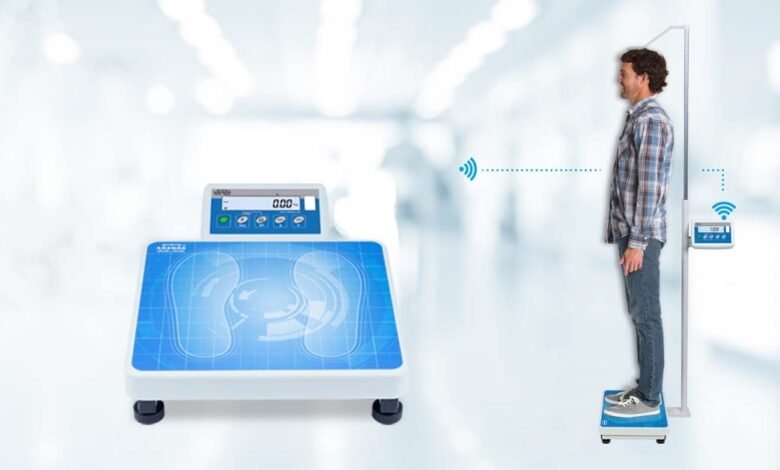
In the fast-paced realm of healthcare, technological advancements are continuously transforming the landscape of medical equipment. One area where innovation has made significant strides is in the development of medical scales. Traditionally viewed as simple devices for measuring weight, modern medical scales have evolved into sophisticated tools that contribute to enhanced patient care, streamlined workflows, and improved diagnostic accuracy. In this blog post, we will delve into the fascinating world of medical scales and examine the profound impact that technological advancements have had on these essential instruments.
Precision and Accuracy:
One of the most noteworthy contributions of technology to medical scales is the improvement in precision and accuracy. Advanced sensors and calibration techniques enable modern scales to provide more reliable and consistent measurements. This is particularly crucial in healthcare settings where precise weight measurements are integral to patient diagnoses, medication dosages, and treatment plans. The enhanced accuracy of these scales not only benefits patients by ensuring proper care but also supports healthcare professionals in making informed decisions based on reliable data.
Moreover, the continuous advancements in technology have led to the integration of artificial intelligence algorithms, further refining the precision of medical scales. These intelligent systems can analyze data patterns, identify anomalies, and compensate for environmental factors that may affect measurements. As a result, healthcare providers can trust that the information obtained from these scales is not only accurate but also reflects the most up-to-date understanding of a patient’s health status.
Integration with Electronic Health Records (EHR):
The integration of medical scales with Electronic Health Records (EHR) systems has streamlined the documentation process in healthcare facilities. Automated data transfer from the scale to the patient’s electronic record eliminates the need for manual data entry, reducing the likelihood of human errors and saving valuable time for healthcare providers. This integration facilitates a more seamless flow of information across various departments, promoting efficient communication and coordination in patient care.
Furthermore, the interoperability between medical scales and EHR systems enhances the continuity of care. Healthcare professionals can access a patient’s comprehensive health data, including weight trends, at any point in their treatment journey. This holistic view allows for better-informed decision-making, personalized treatment plans, and improved patient outcomes.
Body Composition Analysis:
Traditional scales merely measured total body weight, providing a limited perspective on a patient’s health. Modern medical scales, however, have evolved to include body composition analysis features. These advanced scales can assess factors such as body fat percentage, muscle mass, and water content. This additional information is invaluable for healthcare professionals in tailoring personalized treatment plans, monitoring the effectiveness of interventions, and promoting overall patient wellness.
Furthermore, the integration of body composition analysis into routine healthcare assessments allows for a more nuanced understanding of a patient’s health profile. For instance, knowing the distribution of muscle mass versus fat mass can be crucial in designing targeted exercise regimens or nutritional interventions. This level of granularity enables healthcare providers to address specific health goals and challenges, such as managing obesity, supporting muscle development, or addressing hydration imbalances.
Connectivity and Remote Monitoring:
In an era dominated by interconnected technologies, medical scales have embraced connectivity to enable remote monitoring. This feature is particularly beneficial for individuals with chronic conditions or those undergoing long-term treatments. Patients can now transmit their weight data to healthcare providers from the comfort of their homes, fostering a more proactive approach to healthcare management. Remote monitoring not only enhances patient convenience but also allows healthcare professionals to intervene promptly in case of any concerning developments.
Patient-Centric Design:
Technological advancements have not only improved the functionality of medical scales but also their design, making them more patient-centric. User-friendly interfaces, ergonomic designs, and non-intrusive measurement methods contribute to a positive patient experience. This is especially crucial in promoting adherence to regular weight monitoring, particularly for patients managing chronic conditions or undergoing weight management programs.
Conclusion:
The impact of technological advancements on medical scales goes far beyond mere weight measurement. From precision and accuracy to connectivity and patient-centric design, these innovations have revolutionized the role of medical scales in healthcare. As technology continues to advance, the potential for further enhancements in the capabilities of medical scales is vast, promising even more accurate diagnostics, efficient patient care, and improved overall health outcomes. The integration of technology into these essential healthcare instruments marks a promising step forward in the continuous pursuit of excellence in patient care.


